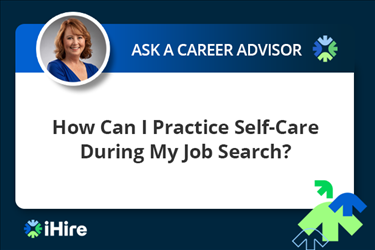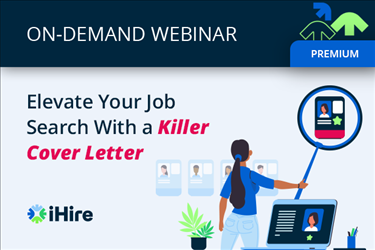- Job Seeker Resources
- |
- Last Updated: September 06, 2022

How Long Does a Job Search Take in 2022?
How long the average job search takes varies by industry and candidate. While it's a job seeker's market, it can still take time to find the right fit.
Read on to learn how long you can expect to spend searching before you land your dream job and get tips on how you can make your job search more efficient.
Average Time It Takes To Find a Job Across All Industries
The COVID-19 pandemic has had lasting effects on the economy in several ways. One such effect was on unemployment rates. Because of the drastic spike in pandemic-related unemployment rates in 2020, millions of Americans were left jobless.
Thanks to the economic stimulus during the first portion of the pandemic, many people who lost their jobs could make it through the initial period of job loss.
While this left potential hires in good bargaining positions, it also meant a considerable amount of job seekers flooded the market simultaneously, meaning there was a tremendous amount of competition for the same roles, especially remote ones.
Below are the seasonally adjusted average periods it took job seekers to find a new job across all industries, as reported by the U.S. Bureau of Labor Statistics. This table reflects statistics from March through July 2022 in comparison to July 2021.
|
Month |
July 2021 |
March 2022 |
April 2022 |
May 2022 |
June 2022 |
July 2022 |
|
Average duration in weeks |
29.4 |
24.2 |
25.0 |
22.5 |
22.3 |
22.1 |
The above table indicates an improvement in the length of time job seekers spent looking for jobs in 2022, with a roughly seven-week shorter period of unemployment this July compared to the same time last year.
Despite this improvement, the data indicates that you can expect to spend roughly five to six months looking for your next work opportunity.
Speed Up Your Job Search
Sign In to Find Your Next Job Faster

Job Seeker Sign In
Average Time It Takes To Find a Job for Specific Industries
The U.S. Bureau of Labor Statistics has compiled the below data on unemployment rates between 2021 and July 2022. Each of the below industries experienced shorter periods of unemployment in 2022 compared to 2021.
Construction: 5 Months
The average duration of unemployment in the construction field fell by 5.5 weeks in 2022.
|
Period |
2021 |
July 2022 |
|
Average duration (in weeks) |
25.9 |
20.4 |
Healthcare and Education: 4 Months
The average duration of unemployment in the healthcare and education fields fell by 11.1 weeks in 2022.
|
Period |
2021 |
July 2022 |
|
Average duration (in weeks) |
27.1 |
16.0 |
Finance: 7 Months
The average duration of unemployment in the finance field fell by 2.6 weeks in 2022.
|
Period |
2021 |
July 2022 |
|
Average duration (in weeks) |
30.7 |
28.1 |
Transportation: 6 Months
The average duration of unemployment in the transportation field fell by 2.3 weeks in 2022.
|
Period |
2021 |
July 2022 |
|
Average duration (in weeks) |
27.5 |
25.2 |

Factors That Affect Average Job Search Length
The numbers above reflect the unemployment rates for specific industries over the last year, but it's important to remember that several factors affect job search length.
Consider the following when assessing how long it might take you to get hired in your next position:
- The state of the job market
- Your education
- Which industry you're applying in
- How you're searching for jobs
- Whether you plan to work remotely or in-person
- Your experience level
While these factors won't necessarily help or hinder your job search, it's important to remember how your job search fits into broader labor trends.
How To Speed Up Your Job Search
Although it can feel overwhelming to think about being unemployed for up to six months, remember that these are averages, and this number varies by individual and industry.
Consider the following tips to speed up your job search:
- Review your resume: As the applicant pool gets larger, it can be harder to stand out from the crowd. If you add this to the fact that many companies now opt to automate resume screenings, a few simple resume mistakes can disqualify you. Consider making sure you're using appropriate fonts, margins, and layouts using iHire's convenient resume tools.
- Proactively follow up on applications: If you haven’t heard back after a week or so, reach out to the hiring manager directly to confirm receipt of your application, show that you’re genuinely interested in the job, and keep your name top of mind.
- Reach out to your network: Ensure your LinkedIn profile is updated with your most recent history, and let your community know that you're actively looking for a job. Be sure to take this time to polish your resume and interview skills and gather a few letters of recommendation.
- Reach out to companies directly: Make a list of companies you'd like to work for and reach out to their HR teams. Even if they aren't currently hiring, they may keep you in mind for future openings.
Remember that finding the right job takes time, but actively working to make yourself more hireable and discoverable is your best bet to getting hired sooner.
If you're ready to find a new job today, consider using iHire's numerous resources for writing your resume, improving your interviewing skills, and more to help speed up your job search.
Sign In or Register to access all articles and insider tips for help in your job search.
Search for iHire Jobs
RELATED JOBS
RELATED RESOURCES
Find the Right Job Faster
- Get personalized job matches sent to your inbox every day
- Connect directly with employers before your competition
- Advance your career with expert advice on interviewing, salary negotiation, and more
We value your privacy




